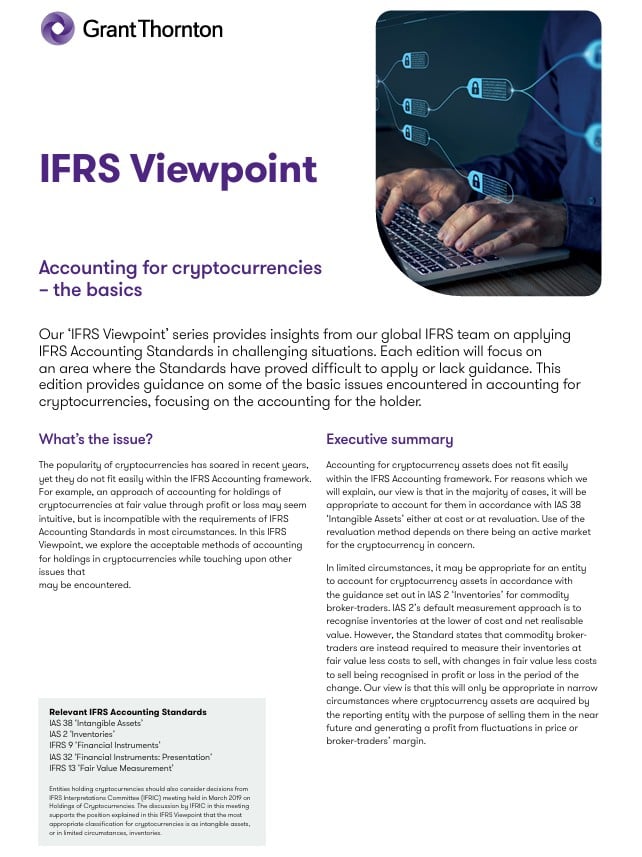
Accounting for cryptocurrency assets does not fit easily within the IFRS Accounting framework. For reasons which we will explain, our view is that in the majority of cases, it will be appropriate to account for them in accordance with IAS 38 ‘Intangible Assets’ either at cost or at revaluation. Use of the revaluation method depends on there being an active market
for the cryptocurrency in concern.
In limited circumstances, it may be appropriate for an entity to account for cryptocurrency assets in accordance with the guidance set out in IAS 2 ‘Inventories’ for commodity broker-traders. IAS 2’s default measurement approach is to recognise inventories at the lower of cost and net realisable value. However, the Standard states that commodity broker traders are instead required to measure their inventories at fair value less costs to sell, with changes in fair value less costs to sell being recognised in profit or loss in the period of the change. Our view is that this will only be appropriate in narrow circumstances where cryptocurrency assets are acquired by the reporting entity with the purpose of selling them in the near future and generating a profit from fluctuations in price or broker-traders’ margin.
